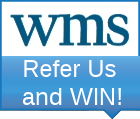 William M. Sparks 1945 - 2023
William M. Sparks 1945 - 2023
My father, William (Bill) Sparks, passed away sadly but comfortably Sunday morning, surrounded by his family. He was a kind and loving man with a heart of gold. There are so many who loved him and will feel this loss – in the business world and far beyond. He would say thank you to all of his small-business customer for their support, and he would wish everyone peace and happiness. I have run the William M. Sparks Insurance Agency for many years now, and I will continue to run it just as my father did and as he would want me to do. On behalf of my family, I thank you all for your kind words, well wishes and support at this time. --- Danielle Sparks
Drivers are distracted in many ways, including everything from dealing with children, pets and other passengers, to operating the car’s climate controls, audio or navigation device, and from eating to old-fashioned map reading. However, by far the deadliest distractions come from talking on the cell phone and texting while driving. Moreover, using your cell phone while driving has been found to impair your ability to drive your car just as much as driving while drunk.
Types of Distractions
No matter what your distractions might be, they all fall into one of the following three categories according to which of your senses are distracted by the activity, and texting and other cell phone use combine all three.
- Manual distractions – causing you to take your hands off the steering wheel
- Visual distractions – causing you to take your eyes off the road
- Cognitive distractions – causing you to take your mind off the road
According to research done by the National Highway Traffic Safety Administration (NHTSA), over half a million people were injured and over 6000 people died because of distracted or inattentive drivers in 2008.
When so many injuries and deaths occur from such a cause – and the number is increasing, then it raises our collective awareness and repercussions occur.
The Impact on Insurance and Industry
Obviously, the situation threatens a rise in auto insurance costs because insurance companies must pay increasing numbers of payouts; and this could result in increased premiums for all of us. Therefore, insurers are taking part in the movement to control distracted drivers.
This growing problem has also captured the attention of industry because of the potential for lawsuits against employers for injuries and damage caused by employees who carry out their business by cell phone while they drive.
Campaign Against Distracted Driving
As a result, a cross-section of safety and industry organizations, including the NHTSA, have joined in a campaign against distracted driving. They are encouraging states to enact laws to prohibit texting while driving and have drafted a sample state law which was unveiled by U.S. Transportation Secretary, Ray LaHood, in February, 2010.
In fact, 19 states and the District of Columbia have texting laws in place covering all drivers, and others are pending. State laws vary, and below are some examples as reported by the Governors Highway Safety Association:
- Maryland bans hand-held cell phone use and texting for all drivers. The law allows citation for hand-held cell phone use only if other violations are being cited; but Maryland drivers may be cited for texting even if no other violation has occurred. (Reflects law chnge in Maryland effective on October 1, 2010)
- District of Columbia bans use of cell phones and all handheld devices for all drivers (novice drivers with learners permit included), and citation is allowed even without other violations.
- Virginia bans cell phone use for all novice drivers under age 18 but allows citation only if other violations are being cited. Cell phone use by Virginia school bus drivers is banned and allows citing even if no other violation exists. Texting is banned for all bus drivers but allows citing only if another violation exists.
- West Virginia bans all use of cell phones including text messaging vices for novice drivers with learners and intermediate permits, and citation is allowed even without other violations.
Media Taking Action Against Distracted Driving
The public campaign to stop distracted driving – especially driving while texting and using a cell phone – is spreading, and the media is doing its part, as well. Here are just a couple of recent examples:
- You can find all the information and great resources on a new website opened by the NHTSA at www.distraction.gov .
- Among other high-profile public figures, Oprah Winfrey has made this cause a priority on her television show as well as on her website at www.oprah.com . There, you can catch videos, stories and other features that will inform and challenge you to do your part. You can take a quiz to test your knowledge about this serious topic, and you can even sign a pledge to make your vehicle a “no-phone-zone”.
What You Can Do
Whether you are a business owner, employer or just an individual concerned about your loved ones, you will want to minimize your risk by limiting your cell phone use and texting to non-driving time and by encouraging others who drive your vehicles to do the same.
Tag Cloud

|
|
 |




